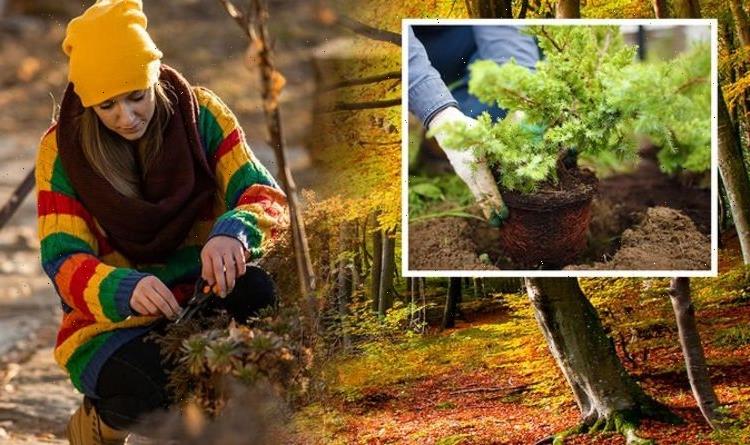Winter gardening tips
We use your sign-up to provide content in ways you’ve consented to and to improve our understanding of you. This may include adverts from us and 3rd parties based on our understanding. You can unsubscribe at any time. More info
The winter weather is setting in as we reach the middle of November, leaving many of us to favour the warmth of our homes over the chilly breeze in our garden. While gardening in the late autumn climate might not sound too appealing, it’s important not to be deterred from getting out in the fresh air and spending time in the garden to get these 10 essential tasks checked off of your list.
What to do in the garden this month
Preparation is a core focus in the garden this month with everything from soil to tools requiring a bit of TLC ahead of the harsh winter weather.
Sharpen tools
Tree branches and shrub vines are becoming barer by the day which means it’s almost time to prune the framework of your garden plants.
You’ll need to sharpen your tools up before pruning so gather a dull blade or a sharpening stone to prepare your loppers and secateurs before use.
Ensure your tools are prepped and clean before removing congested branches to avoid spreading disease or making inaccurate cuts with your tools.


Plant bare root shrubs and trees
The mild weather means the soil is in its prime to host bare root trees and shrubs, so begin planting these out in borders to act as hedging or to fill space.
Choose native varieties like hazel, beech, ash, rose bushes and fruit trees.
Gather water
Water butts are an effortless way to gather natural rainwater to use in your garden.
Not only is it better for your plants, but it will save you some money on your water bill.
Use a raised water butt on a stand so you can easily place a bucket underneath the tap for easy access, and use a lid or cover to prevent debris or insects from contaminating the precious rainfall.

Clean up decking and patios
Keeping on top of fallen leaves and windblown debris from gathering on your hard surfaces in the garden will prolong the aesthetic of your decking or patio.
Gathered leaves can turn slippery and accumulated muck could harbour disease and unwanted pests.
Regularly sweep hard surfaces and use a jet washer to deep-clean timber decking and paving slabs.
Look after garden wildlife
Place extra bird feeders and refill these regularly to keep wildlife fed through the sparse season.
Wash feeders weekly to avoid spreading disease and make small gaps in fencing to allow hedgehogs to pass through with ease.
DON’T MISS:
Cleaning: Mrs Hinch fans’ £4.99 product to remove mould instantly [INSIGHT]
Winter vegetables to sow, plant and harvest right now – November guide [GUIDE]
What causes mushrooms in your lawn? Four ways to BANISH pesky fungi [TIPS]

Focus on tender tubers
Once the first frosts have touched dahlia tubers, cut back the stems and mulch the area with compost.
In heavier soils, dig up tubers and store them in a garage until dry ready to pot up next spring.
Divide perennials
The mild November weather means your garden soil should still be workable, allowing you to divide perennials and create copies of a parent plant.
Plant divisions at the same depth as they were growing before and allow them to establish before the onset of winter.
Take root cuttings
Root cuttings are an easy way to propagate plants without spreading pests or disease – though you should remove no more than one-third of each plant’s root system when doing so.

Prune trees and shrubs
When pruning the framework of empty trees and shrubs, you should always look twice and cut once.
Over-pruning is hard to rectify and can ruin the structure of your plant, so only ever remove dead, diseased or damaged growth when pruning in November.
Pot summer cuttings
Replicating your summer display begins in November when potting up softwood and semi-ripe cuttings from perennials and summer shrubs.
Pot each cutting individually and overwinter them in a frost-free environment like a greenhouse or on your windowsill.
Tend to your houseplants
Houseplants also require some seasonal care so move plants to lighter spots as the days darken and keep them away from radiators or open fires.
Slow down your watering schedule by only watering soil when touch-dry, though you should continue to water orchids and African violets on a fortnightly basis.
Wipe dust from leaves using a damp cloth and keep indoor plants away from condensation on windows by removing them from window sills overnight.
Source: Read Full Article
